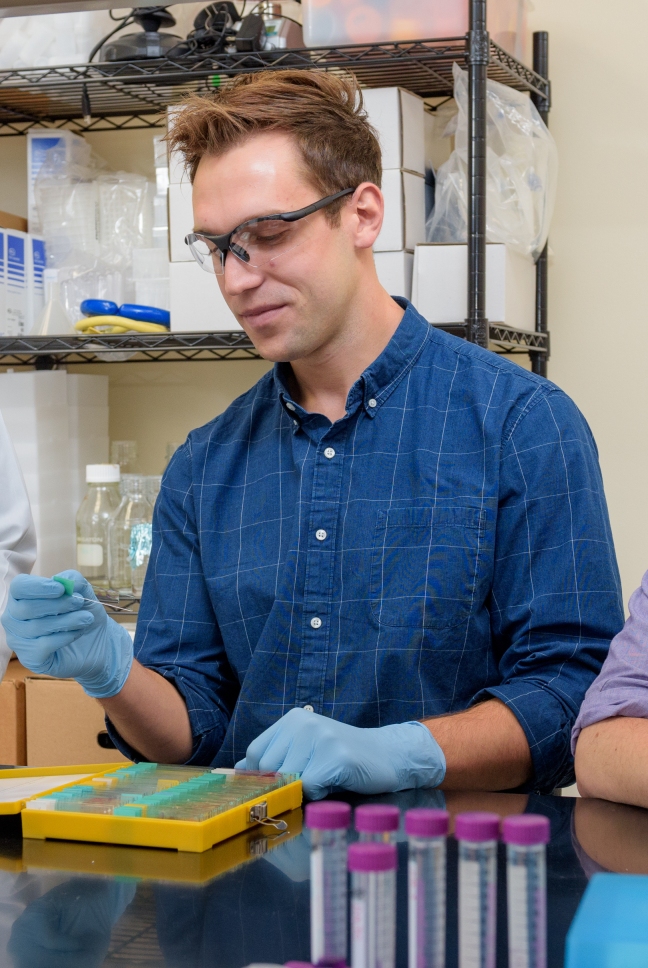About the author: Ryan is a first year graduate student in Biomedical Engineering at the University of Delaware. He joined the Killian Lab in 2016 and is UD’s BMES Chapter President. His research interests involve biomechanics of the tendon-to-bone attachment and identifying cellular and molecular pathways for musculoskeletal regeneration.
Experiment planning is one of the most exciting aspects of research! Here is an example of why experiment planning is exciting: First, you come up with a question around your interests, such as how do stem cells differentiate under pure shear? The next step is for you to plan experiments to answer that question. The experiment to answer your question may be simple or it may be complex, nevertheless during experiment planning you get to think of the potential problems that may arise, tests that will work, tests that won’t work, and really delve into the most creative hemisphere of your brain to answer your question. Of course the question won’t be answered until you run the experiments, but it is the creative-thinking that arises during experiment planning that is so exciting. Although exciting, it is important to adequately plan and to plan adequate experiments to conserve your time and resources in the lab. To help with planning, this article provides a short bulleted list for who plans, why to plan, when to plan, where to plan, and how to plan experiments.
- Who plans experiments: You do! That’s right you plan experiments. Whether you are a high school, undergraduate, graduate, post-doctorate, or medical student, you plan experiments in the lab. Keep in mind that you don’t do this alone, your advisor will guide you through the process and provide the most valuable input for your experiment plan. Additionally, your peers can answer questions you may have during the planning process. It is always good to ask questions to make sure you’re running the right test or adding the right amount of solution A to solution B.
- Why to plan experiments: Planning experiments conserves your time in the long run; if you have a well written plan for your experiments, such as gantt charts, you won’t end up wasting time redoing an experiment because a critical step was missed along the way. Additionally, experiment plans enable you to identify how long you need to block off in your day for experiments, thus it becomes evident when you have time to plan more experiments, write an abstract, do homework, finalize an image, when you can take time for yourself, etc.
- When to plan experiments: Experiment planning can occur at anytime. From my experience, it is easiest to plan long-term experiments when your workload is low. Additionally, I have found it important to create short-term plans if you realize that your workload is about to increase. Planning at these periods will make the increased workload seem more manageable. However, planning experiments can occur at anytime and is most likely based on what fits individual preferences; there is no exact formula for when to plan experiments, yet planning often is beneficial.
- Where to plan experiments: Coffee shops – the honorary experiment planning hero. Coffee shops offer the perfect balance of liquid energy (coffee) and relaxation to be proficient. The real answer is anywhere. Grab a pen and paper and start writing, for that matter, grab a pen and a napkin; an experiment plan can be written anywhere. For instance, several of my colleagues and I have our best thoughts immediately after laying down to go to sleep, thus we keep a notepad on our nightstand 1) to quickly get those ideas onto paper so they aren’t lost the next day and 2) to help fall asleep faster after a long day of experiment planning.
- How to plan experiments: First, come up with the question and ‘driving hypothesis’ that you want to answer and have a good rationale for wanting to answer that question. Then, a great place to learn how to plan experiments and to help manage your experiments is here: http://www.dapulse.com. Alongside identifying how long the experiments will take, it is also a good idea to make sure you have the materials that you need to run your experiment, the proper notebook to document findings or problems during the experiment, and resources to store large amounts of data, prior to starting the experiment. Additionally, an experiment is only as good as the protocol, thus creating and storing your protocols for each experiment will help to make experiment planning easy, now and in the future.

